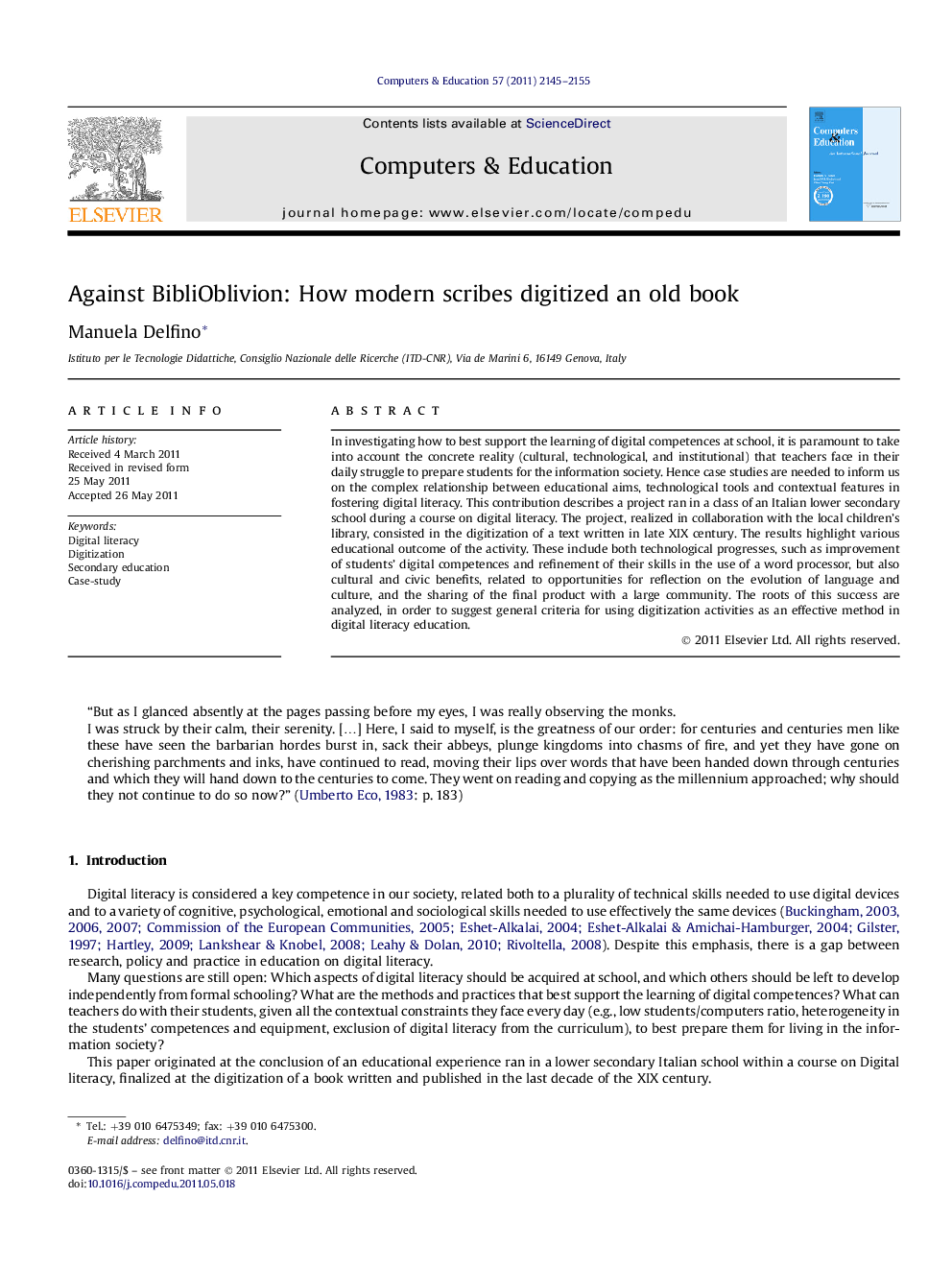| Article ID | Journal | Published Year | Pages | File Type |
|---|---|---|---|---|
| 348798 | Computers & Education | 2011 | 11 Pages |
In investigating how to best support the learning of digital competences at school, it is paramount to take into account the concrete reality (cultural, technological, and institutional) that teachers face in their daily struggle to prepare students for the information society. Hence case studies are needed to inform us on the complex relationship between educational aims, technological tools and contextual features in fostering digital literacy. This contribution describes a project ran in a class of an Italian lower secondary school during a course on digital literacy. The project, realized in collaboration with the local children’s library, consisted in the digitization of a text written in late XIX century. The results highlight various educational outcome of the activity. These include both technological progresses, such as improvement of students’ digital competences and refinement of their skills in the use of a word processor, but also cultural and civic benefits, related to opportunities for reflection on the evolution of language and culture, and the sharing of the final product with a large community. The roots of this success are analyzed, in order to suggest general criteria for using digitization activities as an effective method in digital literacy education.
► A case study investigating how to best support the learning of digital competences. ► A project aimed to educate secondary school students while digitizing an old book. ► Digitization activities as an effective method in digital literacy education. ► Students improved their digital competences and refined their technological skills. ► Students gained cultural and civic benefits, and shared their final product.
